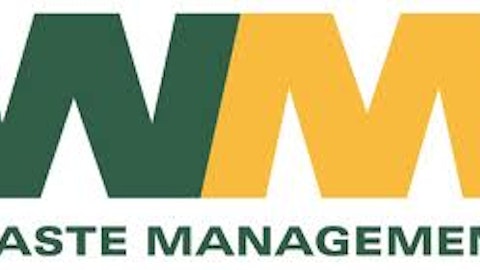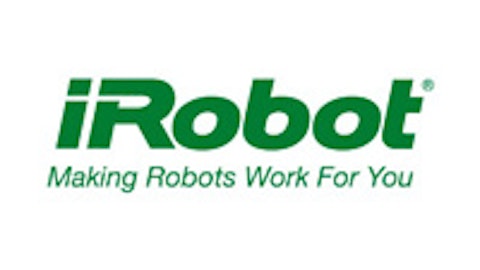Waste Management, Inc. (NYSE:WM) released earnings for its fourth quarter and fiscal year on Thursday, Feb. 14, and it wasn’t a very exciting valentine. Very slight improvements in trash volumes and pricing led to an increase in revenue of 0.8%, but earnings per share fell around 17%, largely due to asset impairments, costs associated with the company’s ongoing restructuring plan, and the acquisition and integration of Oakleaf, a waste and recycling logistics provider that matches customers to third-party waste operators.
Good news for dividend lovers (and if you don’t love dividends, Waste Management’s probably not for you), the board raised the dividend for the 10th year in a row, nudging it up by 3% to $1.46 per share for an annual yield around 4%. Management offered guidance that the dividend would continue to rise along with earnings, and that earnings would rebound in 2013 by 20%-25%, as pricing begins to recover along with the U.S. economy and the company continues to execute its restructuring effort.

Investors should continue to watch the success of this plan, which has the potential not only to generate more cash for investors but also make Waste Management a more formidable competitor as it seeks to consolidate the highly fragmented waste industry. In 2013, Fish and the team are focused on getting 100 more basis points by creating a more efficient routing and logistics program and focusing on operating costs. To achieve this goal, management has set incentive programs that are 50% dependent on improved operating costs for field operators. With the pieces in place for the company to manage this feat, failing to do so would be a red flag.
Treasure-hunting in trash piles
Throughout fiscal year 2012, Waste Management had affirmed its dedication to sustainability by focusing on recycling, mining the waste stream for reusable commodities. It followed up its acquisition of Oakleaf with the purchase of Greenstar, one of the nation’s largest private recyclers. Greenstar’s annual 1.5 million tons of recycled materials bring Waste Management’s total recycled commodity stream up 18% to approximately 9.5 million. The company also continued to generate clean energy through its 22 waste-to-energy plants in the U.S. and joint-enterprises in China.
Waste Management wants to be in the recycling and waste-to-energy business because, more than ever, customers are demanding sustainability minded waste solutions – Waste Management can see which way the wind is blowing. It’s potentially a very lucrative position to get paid to take away someone’s trash, and then get paid to sell that trash to someone else.
So far, however, Waste Management is getting hammered for its good behavior due to low commodity prices. With rock-bottom natural gas prices depressing the cost of electricity in the U.S., and slower growth in both China’s economy and the U.S. housing market hurting commodity prices, Waste Management’s contracts have become deeply unprofitable. In 2012, recycling commodity and electricity prices dragged earnings down by $0.25 per share, over 14% of earnings. Management doesn’t expect these activities to be profitable in 2013, either.




